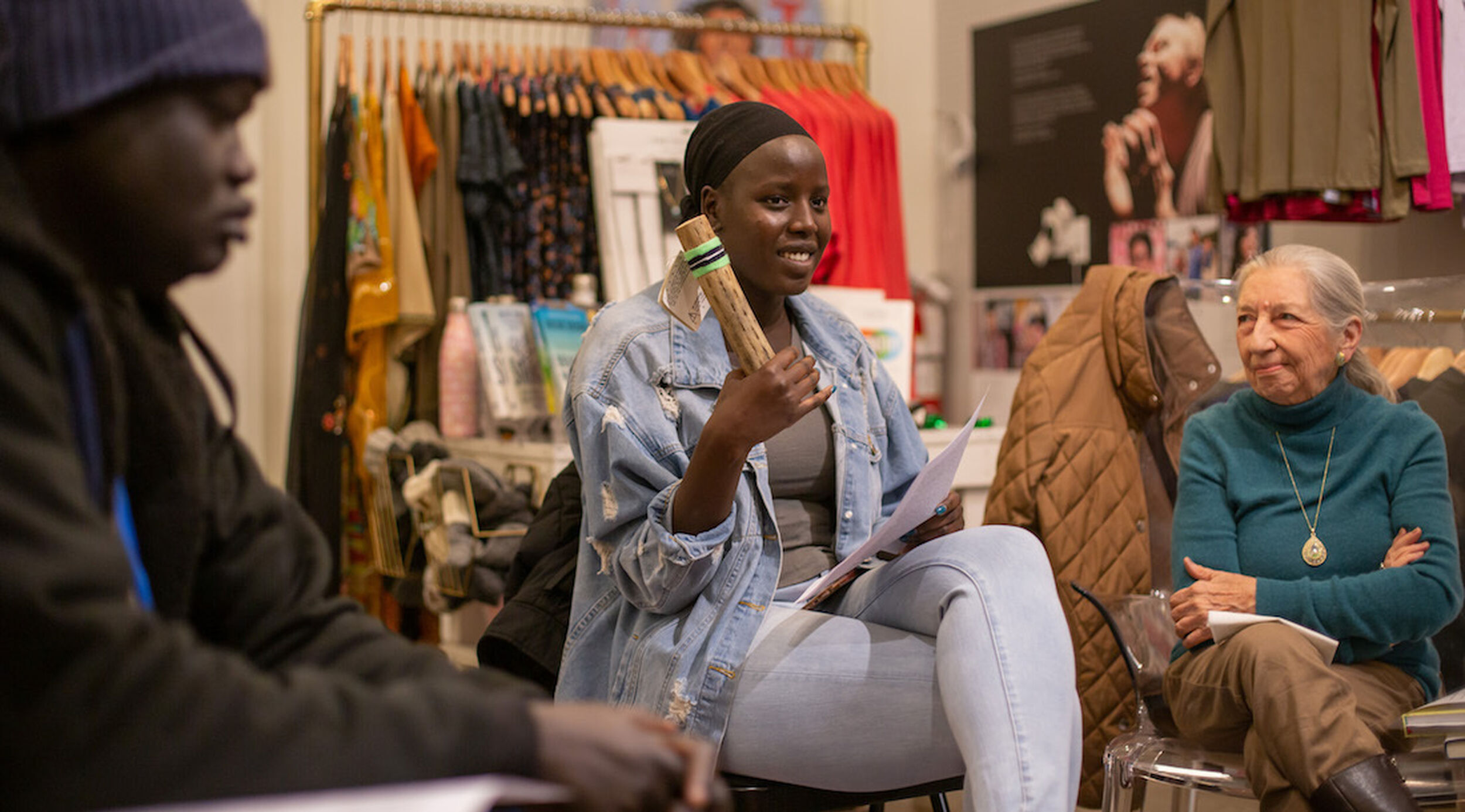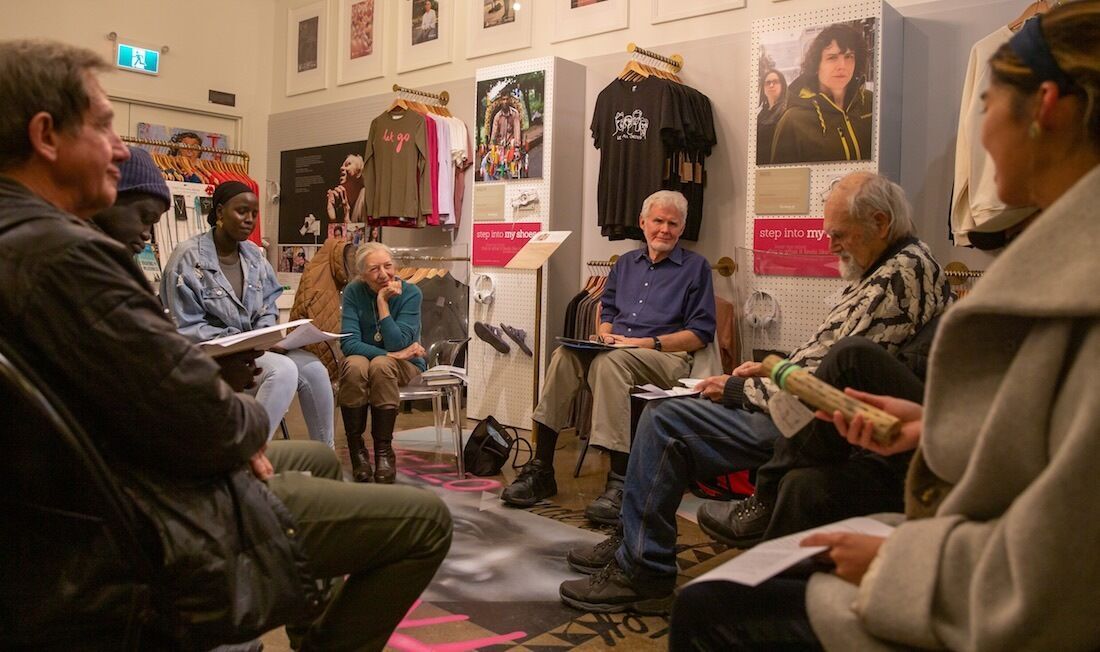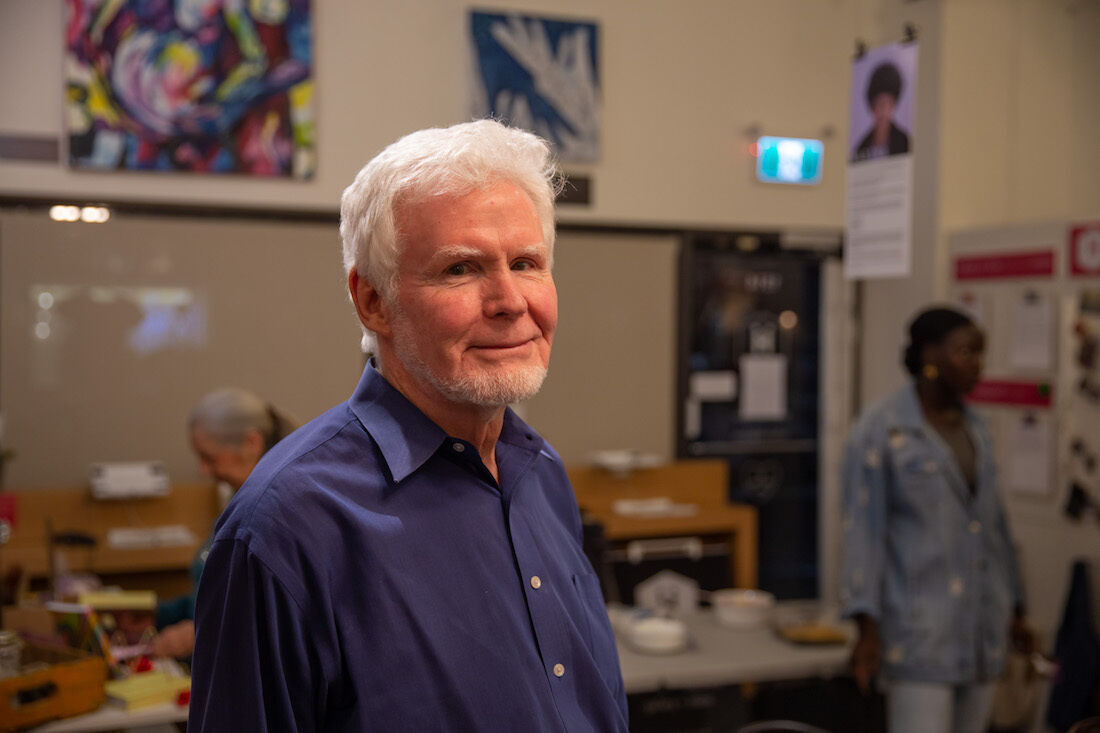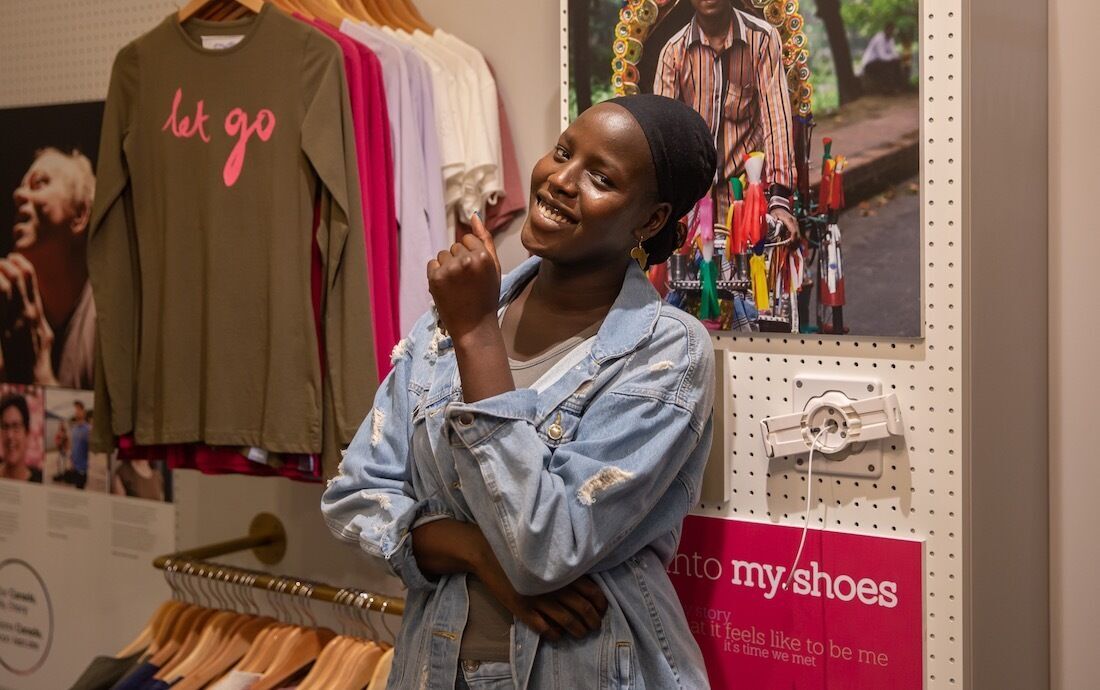
Nyabuoy Gatbel, centre, speaks at the weekly Dialogue gathering. Photo: David Kotsibie
In tense times, these Calgarians make space for dialogue
Face to face, not just online.
I’m sitting in a circle with six strangers, taking part in a conversation that meanders from stoicism to massive flooding in South Sudan to singer Vera Lynn.
Simply called Dialogue, this weekly event is about connecting with people you are unlikely to ordinarily meet—and talking face to face. That’s it.
I found myself here because like many in Calgary these days, I am feeling uneasy. We’re facing complicated issues as a city, from downtown towers that remain a quarter empty to uncertainty over the biggest public transit project in Calgary’s history.
Through it all, divisions run deep: urban versus suburban, cities versus rural Alberta, our province versus the rest of the country. Three days after I attended Dialogue, the first Calgary Wexit rally was held in a high school gymnasium.
Like many in Calgary these days, I am feeling uneasy.
Under this backdrop of division, I’ve been wondering about where people who think differently can come together and converse.
It seems like a trivial question, especially amid all these overwhelming issues. But I’m reminded of Robert D. Putnam’s 2000 book, Bowling Alone: The Collapse and Revival of American Community, and his distinction between two types of social capital.
There’s bonding social capital (when you socialize within a demographic group) and, more difficult to develop, bridging social capital (when you connect with people from diverse groups).
Putnam sees bridging capital as a solution to our social ills; without it, civic tensions grow and quality of life declines.
Those thoughts led me to leave the squabbles of social media and head out to a circle of strangers, meeting inside the Humainologie Gallery + Store just off 17th Avenue S.W. Guiding the conversation was Dr. Arthur Clark, who has been organizing these 6 p.m. gatherings every Wednesday for more than two years. Anyone is welcome to join.

Clark has many titles: he’s professor emeritus at the University of Calgary’s Faculty of Medicine, author of a book on global citizenship and founder of the Calgary Centre for Global Community.
Serving in the U.S. Army Medical Corps during the Vietnam War era set Clark on what he calls “a lifelong quest” to seek a healthy global community.
That’s led to local initiatives like this.
“The idea of the weekly dialogues is just to get together and share your ideas with people that you ordinarily wouldn’t connect with,” Clark said. “It can be literature, poetry, world events, philosophy, whatever you want to talk about—but talk to each other.”
Clark says an important appreciation he’s gained from these exchanges concerns understanding.

“You realize that the people all around you are struggling and they're doing the best they can, and often doing extremely, extremely well under very challenging circumstances,” he said.
University student Nyabuoy Gatbel has been attending these dialogues for a few years. “I like the group of people of different backgrounds, diverse stories, different age groups," she said. "It gives a range of perspectives for a young person like myself.”
Through the dialogues, Gatbel has found many commonalities with others. “It humanizes all of us and we get to see how interconnected we truly are,” she said.
For me, it felt unusual yet energizing to converse with strangers just because.
We weren’t there to learn about a specific topic or network for the benefit of our careers or advance a group goal. This wasn’t about small talk, either; the chat quickly veered into the personal and profound.

These Wednesday night conversations aren’t the only local initiative to bring people who think differently together. The How Can You Think That?! book club at Shelf Life Books is an opportunity for people to get out of their echo chambers for a book discussion.
There’s also the recently launched Calgary Alliance for the Common Good, a non-partisan and non-profit organization of religious congregations, unions, school and community groups all working towards a better Calgary.
“The root of what we do, but also in some ways the most counter-cultural thing we do, is that we sit down and have lots of cups of coffee with people,” says Ryan Anderson, lead organizer. “It’s taking the time to encounter other people as human beings and to be curious about them."
“The way we overcome divisions is actually just building relationships and having conversations.”
Those conversations lead to actions, including campaigns on mental health and addictions, social isolation and building community, as well as truth and reconciliation.
It’s taking the time to encounter other people as human beings and to be curious about them.
Mahmut Elbasi is a local restaurant owner and leader with the Anatolian Turkish Islamic Centre of Calgary, an organization that has joined the Alliance. The two groups have worked together on various initiatives including hosting a public Iftar, the breaking of the fast at the end of the day during Ramadan.
For Elbasi, a highlight of joining the Alliance has been making new friends from different communities and encouraging his four kids to do the same.
“It’s opened the doors on Calgary,” he says.
After talking with Anderson and Elbasi, as well as Clark, Gatbel and the others at Dialogue, my unease about our many civic issues hasn’t lifted—but I’m feeling less alone in facing these problems.
And maybe, right now, that’s enough.
Cailynn Klingbeil is a freelance journalist based in Calgary. Her writing has appeared in numerous publications including The New York Times, The Guardian, The Globe and Mail and CBC.
The Sprawl is crowdfunded, ad-free and made in Calgary. Become a Sprawl member today to support independent local journalism!
Support in-depth Calgary journalism.
Sign Me Up!We connect Calgarians with their city through in-depth, curiosity-driven journalism—but can't do this alone! We rely on our readers and listeners to fund our work. Join us by becoming a Sprawl member today!
